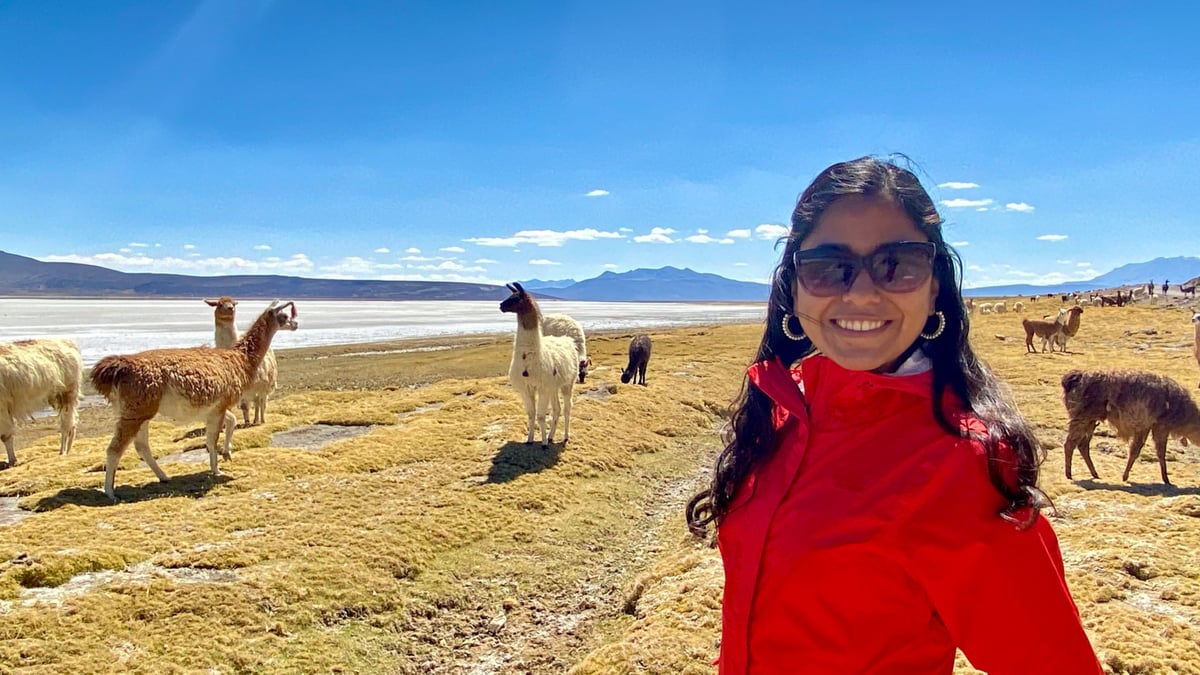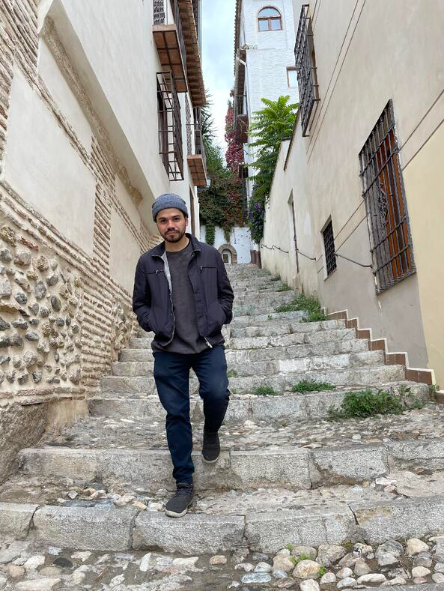Celebrating at UiPath: Hispanic Heritage Month
Share at:

Hispanic and Latina/Latino terminology is often used interchangeably. However, there are distinct differences to be pointed out. Hispanic refers to people who speak Spanish and/or are descendants of Spanish-speaking population. Latina/Latino refers to people who are from and/or descendants of people from Latin America. Latinx is a newer phrase meant to represent gender-neutral representations of Latina/Latino. Most importantly, people can choose to identify as Hispanic, Latina, Latino, or Latinx, and they're all correct. People have a right to self-identify in a way that feels most authentic to their lived experience.
Here at UiPath, we celebrate our value of Fast, but from time to time, we slow down to connect with our global colleagues, and learn about their cultures. September 15 to October 15 marked the celebration of Hispanic Heritage Month, the contributions, and the cultures of Hispanic and Latino-Americans whose ancestors came from Spain, Mexico, the Caribbean, and Central and South America. This month we've dedicated our internal Culture Forum event to discover Mexico. We continue to celebrate by showcasing the journeys of three of our colleagues, their favorite traditions, and lesser-known facts about their heritage.
Arya Morales Badiola has been with UiPath for almost a year. She works as Program Manager for Academic Alliance, with a focus on LATAM. "I was born and raised in Mexico. I grew up in Mexico City and Cuernavaca, which is a little city an hour away from the capital, known as the 'City of Eternal Springtime' because of its wonderful weather. However, I've lived in the United States since 2010, spending some years in San Antonio, Boston and currently in Los Angeles." Since she was a little girl, she loved music and aviation. Apart from her job at UiPath, she's also a Professional Musician, a Music Producer and used to be a Commercial Airline Pilot before joining our team.
Josue Guevara's career journey is nothing short of unique. He's gone from Barista during college turned into District Manager to Business Analyst Consulting, using Tableau as his weapon of choice. He's currently sitting in the Associate Technical Account Manager role at UiPath. "I was born in El Salvador and moved to New York City when I was 10. I love craftmanship and disruptive tech, I find it amazing to be representing the Latinx community every day and finding more of my people around the industry." In his spare time, Josue loves biking around the city and finding hidden coffee shop gems everywhere he goes.

Karina Temoche González, originally from Perú, studied Economics and Finance and after working for two years, she moved to Germany to pursue a master's degree in Business and Technology. She is an Automation Engineer at UiPath, covering the EMEA region. "Some of the things I love? Good food, travel and riding the bike. I definitely moved to the right place to do the things I love!"
We've also asked Arya, Josue and Karina about their favorite traditions and what they wish everybody should know about their Hispanic/ Latinx heritage. Here's what they shared:
"Living abroad, I've come to appreciate even more all those things that I sometimes took for granted from my culture and from home. I've realized the beauty and the importance of all those unique traditions I was fortunate to grow up with. I am so happy to be Mexican and proud of my heritage and my culture", says Arya.
Her favorite traditions are Día de Muertos and Independence Day, "which contrary to what everybody believes, it's not Cinco de Mayo, but September 16th, and it's a major national holiday, a two-day celebration that starts on the evening of September 15th. Everybody either dresses up in traditional festive clothing or wears Green, White or Red clothing (after our flag colors). At 11 PM, the government leaders of every state shout the names of our Independence heroes from the balconies of their city halls, while the people gather in the main esplanades to witness it and chant 'viva!' while bells rung. People dine on dishes that are usually only available during the season, such as the traditional Chiles en Nogada, Buñuelos, Pozole, Tacos dorados and lots of Tequila, Palomas and Micheladas flow during those festivities. The 16th is an observed national holiday and there's usually a parade in most major cities of the country."
For Arya, Día de Muertos is not a day of mourning, but a day of celebration, remembrance, and unity. "We celebrate the lives of the loved ones we've lost. There's a belief that once a year the spirits of our departed loved ones come to share one more meal with their loved ones. People lay altares, little altars, dedicated to them with their favorite food and drinks, colorful seasonal flowers and seasonal decorations like sugar skulls, day of the dead bread and papel picado. There's a little town on the outskirts of Cuernavaca that celebrates this day by laying a path of marigold petals from the entrance of the local church to the front doors of those people who lost a loved one that year. They open their homes to everybody that wishes to visit, see their dedicated altar, and accompany them to remember and celebrate the life of their departed with them. They'll spend all day cooking their favorite dishes, which they'll share with all the visitors, as well as their favorite drinks, while sharing anecdotes and stories of their lives. It's a way for them to remember and honor their lives through the years", she adds.
Josue thinks most of his country's traditions were "a bit Americanized over the years, however some that stand out in my current life are definitely the upcoming holidays. We celebrate Christmas on the 24th of December and our table is usually full of Tamales Pisques, Panes con Pollo and Pupusas. Around this time there's also a Carnival that's a month-long celebration for the Virgin of Peace. If you're ever in Central America, I recommend you stop by El Salvador. People are welcoming and the food is great. It's a lot more secure now, and you can even use your Bitcoin to buy goods and services!"

Karina recalls that while in school in Perú, she participated in a weekly hour of typical Peruvian dancing. "We learn and then perform a traditional Peruvian dance every quarter. Since Peru is so multi-cultural, I believe that it is very important to get involved with our different dance styles that show different traditions. A less-known fact about Perú is that for us the guinea pig is like a rabbit. We eat guinea pig, mostly in the Andean Regions, therefore it is not considered a pet."
Thank you to all our Hispanic and Latina/Latino employees for bringing authenticity, leadership, and joy to UiPath. We celebrate you!

Global Employer Branding Manager, UiPath
Get articles from automation experts in your inbox
SubscribeGet articles from automation experts in your inbox
Sign up today and we'll email you the newest articles every week.
Thank you for subscribing!
Thank you for subscribing! Each week, we'll send the best automation blog posts straight to your inbox.



